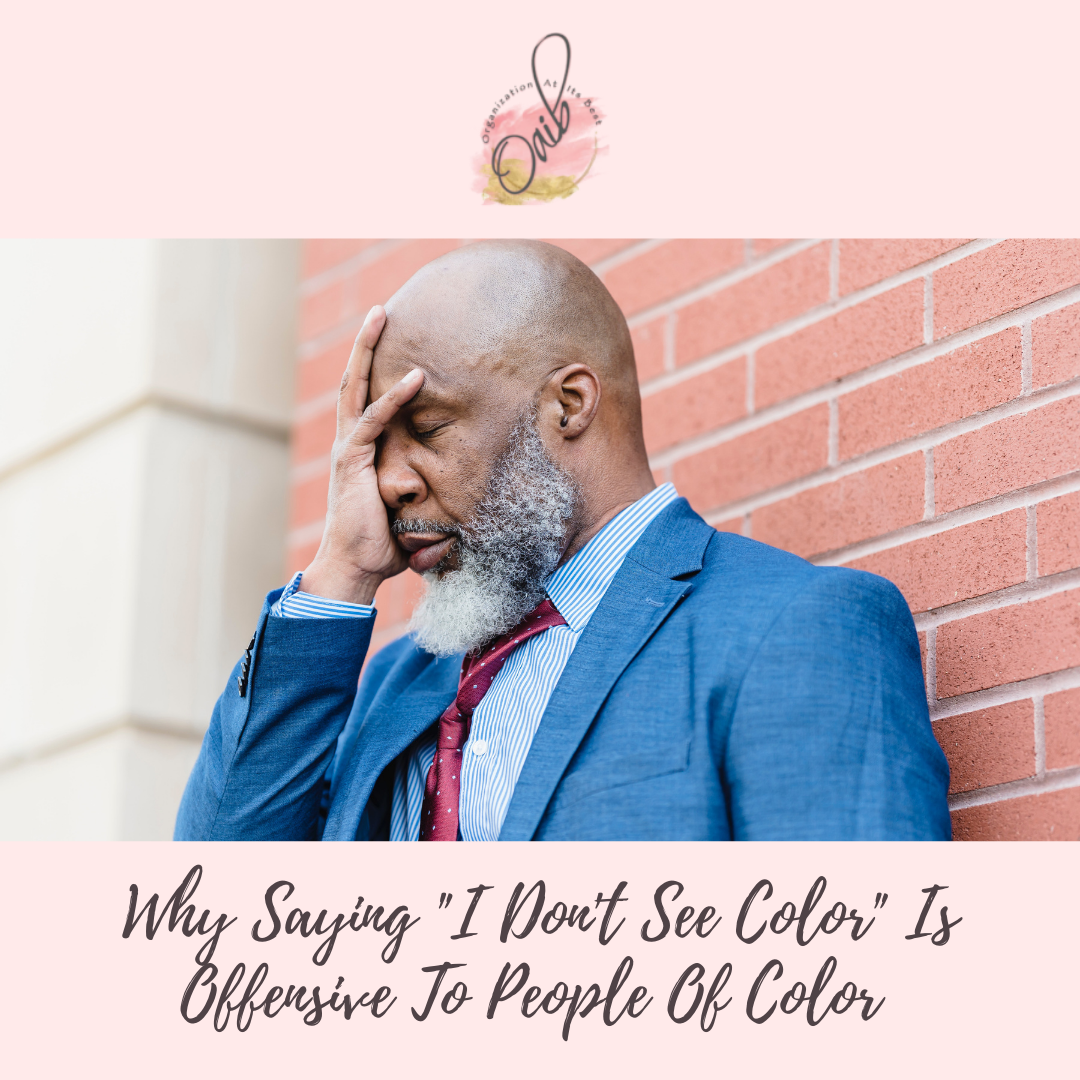
MARCH 16, 2023
Why Saying “I Don’t See Color” Is Offensive To People Of Color
As she talked, I could sense the tension building inside her. As a White woman, she didn’t want to be seen as biased or racist.
I had to brace myself because I knew the four words she was about to say.
Sure enough, seconds later they came out of her mouth.
“I don’t see color,” she said. “I just see people.”
With good intentions, this woman thought she made a positive statement about her lack of racism, but to me, a Person of Color, it shed light on her lack of awareness.
She clearly didn’t understand the meaning of that statement to someone like me.
When you tell a Black person you don’t see color, what is heard is that you don’t see them.
From the day we are born, People of Color live with the knowledge that our skin color makes us different.
Every element of American culture, our history and laws, our police practices, our struggles to advance, the education system, the way White people look at us, the way we see ourselves, and every interaction with White people are all, always, underpinned by this thought.
When you tell me you don’t see my color, you’re telling me you don’t see my source of pride, the struggles I’ve had to overcome.
You’re telling me you don’t see me, the full me anyway.
And you’re telling me you don’t care to understand my lived experience.
You’ve negated the person standing in front of you.
If you’re a White person who says “I don’t see color,” I want to ask you to think hard about why you’re saying it, really.
Are you saying it to make the POC think you’re not a racist? If so, that’s exactly what you’re doing.
Be honest with yourself. Are you saying it to make yourself feel better about your privilege or biases (even the ones you aren’t aware of)?
Are you saying you don’t have any more work to do on yourself?
It’s Not What MLK Meant
To say, “I don’t see color” is to misunderstand, or worse, to twist the words of Martin Luther King, Jr. who said, “I look to a day when people will not be judged by the color of their skin, but by the content of their character.”
He wasn’t saying to deny the identity or experiences of People of Color. He was saying not to judge people.
Not judging and not seeing are two very different things.
What’s The Difference?
People of Color are forced to think about their skin tone in a way that White people never do.
When a White person walks into the room, they just walk right in without ever thinking about what the color of their skin says to the rest of the room.
(If you’re White, what happens when you walk into a room with all Black people?)
When a Person of Color walks into a room, they have to figure out how to navigate and move in that space. With every step and every word, we are thinking about avoiding land mines for fear of being shamed, blamed, misunderstood, or worse.
Just by walking into a room!
So imagine that somebody tells you they “don’t even see your color” while in that same conversation, you’ve been doing mental gymnastics about how that same person will perceive you, because of your color!
The reality is that people are different. We are the same, yes, and also different, all at the same time.
When you recognize those similarities and differences, you’re acting with empathy and understanding.
I’d rather you ask me about my experience as a Black woman than tell me you don’t see me.
Have you heard someone in your organization say “I don’t see color”? Do you say it? If you’d like to discuss ways training can open eyes and improve culture, reach out. I’d love to chat.
Organization At Its Best Founder and Chief Executive Officer, Tawana Bhagwat, has more than twenty-five years of experience directing Human Resource administration, change management, learning and development, facilitation, DEIB, and executive coaching.

